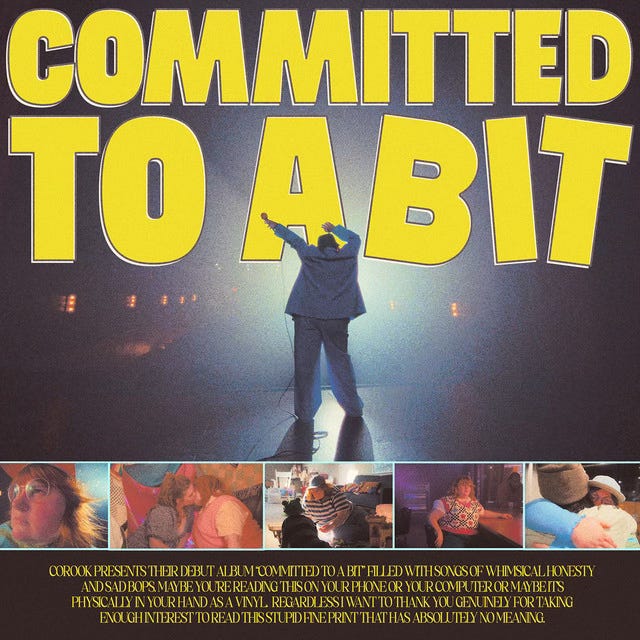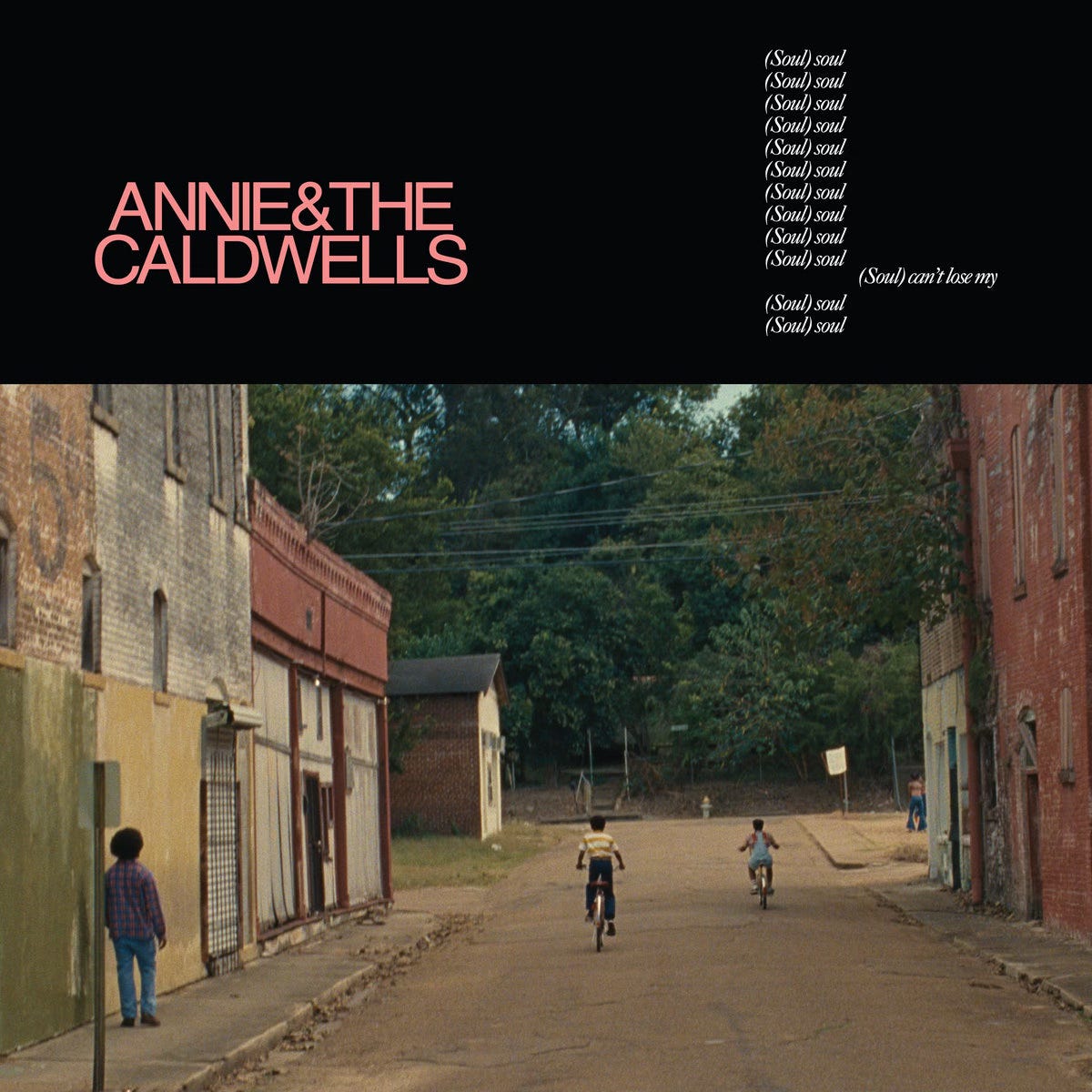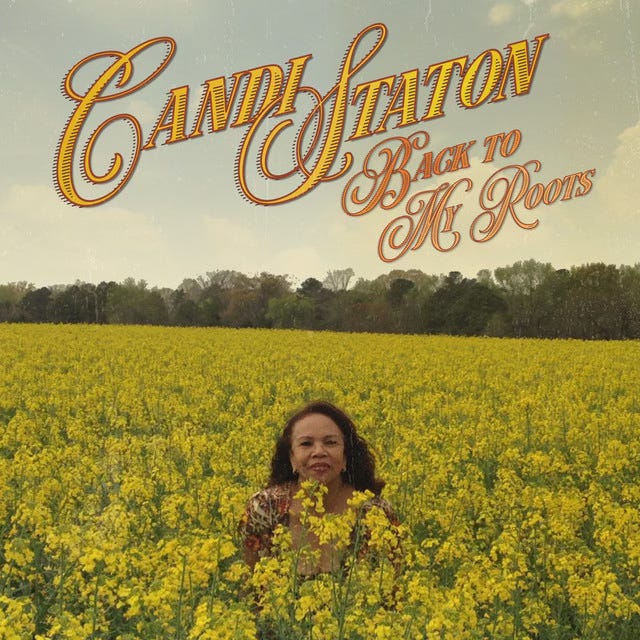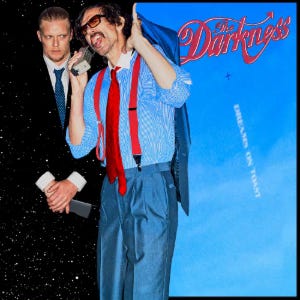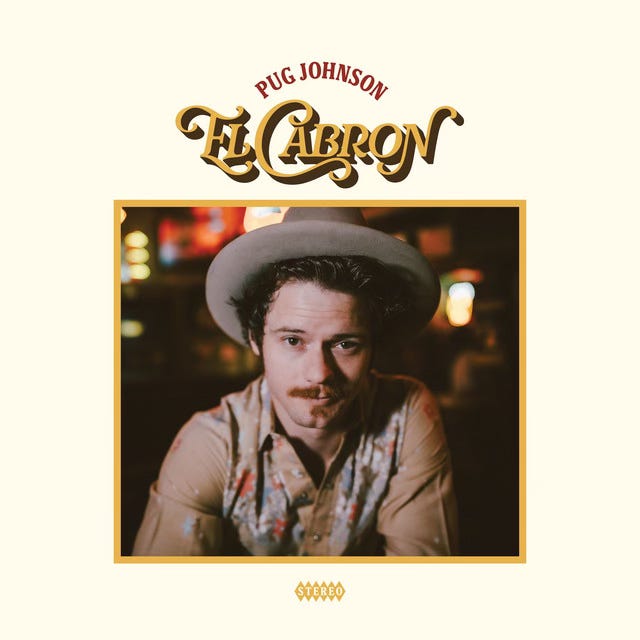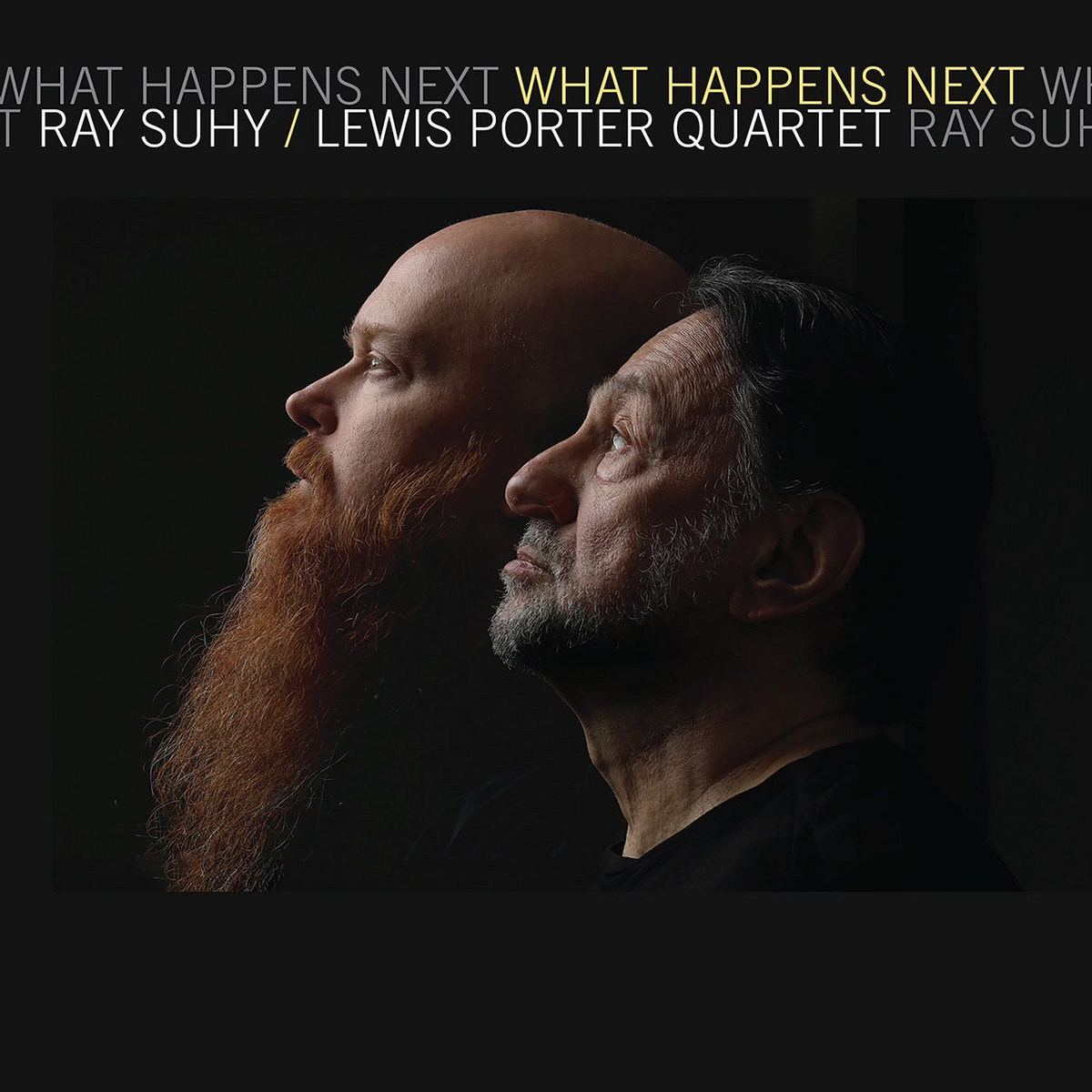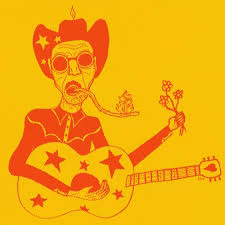Sylvie Courvoisier & Mary Halvorson – Bone Bells. This piano and electric guitar duo has now released three albums together in the last eight years. I haven’t heard the previous ones, but they are obviously perfectly suited for each other. Each brings four compositions to the table, and each takes turns supporting the other while that player is in the forefront. And there are frequent places where both instruments are played as equals. There is a quiet romanticism hidden within the occasionally thumping and discordant sections – the album ultimately resolves like it’s a 19th century chamber group. Of course, the harmonies and melodic stretches and even on one track the banging inside the piano while the guitar chonks and chunks, would have scared the living daylights out of even Beethoven. This is jazz improvisation of passionate beauty.
Charley Crockett – Lonesome Drifter. This is the fifteenth album Crockett has released in just about ten years. I’ve heard at least the last twelve, maybe more, and he’s become just about the most reliable country singer/songwriter working today. This new one stretches his music out a little bit from the basic lonesome plains honky tonk approach he’s used for so long – there are trumpets on a couple tracks, and a killer off-kilter guitar solo on another. And heck, there’s even a minor-key blues that shows how interesting it might be for him to do more of that sort of thing. Mostly, though, it’s the Charley Crockett we’ve come to know and love, with his unique phrasing which makes pauses as dramatic as the melodies. As he says in “Life of a Country Singer”: “I ain’t the first or the best one / But I’m different.”
Sierra Hull – A Tip Toe High Wire. I don’t spend much time in the bluegrass world, though I realize it’s chock full of enormously talented musicians. Sometimes, though, I hear about someone that I can’t ignore, and Sierra Hull’s gifts as a singer, songwriter, and mandolin player make me pay attention. This is her first album in five years, and it’s a corker. The songs are infectiously beautiful, and Hull’s wide-open vocal approach feels like she’s wrapping her arms around the melodies and the listeners simultaneously. They are also full of complex chords and changes which give her mandolin skills – and those of her bandmates on guitar, fiddle, bass, and drums – a workout. Guest vocals from Tim O’Brien and Aoife O’Donovan are nice changes of pace, though at least one of the guys in the band can back her up when necessary. There are two instrumentals which blow me away, especially “E Tune” which brings the great banjo player Béla Fleck in to complement Hull’s mandolin. I can’t find a single thing wrong with this delightful record.
Corook – Committed to a Bit. Pop music can be made on a lower budget, as proved by the thirteen highly personal but mostly enormously infectious songs on corook’s debut full-length album. They sing with gusto about their pronoun “THEY” and with sweetness about love and sex, and with sorrow about their relationship with their parents while growing up and with unusual insight into death and the future. The tunes are often lovely, the production just gussied up enough to make them fit for radio (or much more likely, Tik Tok), and the singing is quite lovely. This is an album that should appeal to anybody who has ever been young and in love or concerned about who they were going to be.
Brian D’Addario – Till the Morning. Is it really a solo album when the other half of your band, your younger brother even, is playing, singing, and co-producing it? This sounds like a Lemon Twigs album to me, especially since I haven’t been able to tell which D’Addario brother is which over the course of several albums. Brian wrote or co-wrote all the songs here, and sings lead, so I guess that’s the difference. As usual, the songs are melodically exquisite and full of old-time analog production touches. My faves here are “Nothing On My Mind” which reminds me of the Byrds crossed with the Left Banke, and “Useless Tears” which is simply masterful baroque pop. But I love the whole record. These D’Addario brothers aren’t built for doing anything but making delightful pop/rock music.
Annie and the Caldwells – Can’t Lose My (Soul). Annie is a Caldwell herself, married to guitarist Willie Caldwell Sr. for fifty years. Their four children are in the band – Willie Jr. on bass, and Abel on drums, with Deborah and Anjessica on backing vocals along with Toni Rivers. They’ve been doing this gig part-time for who knows how long. I’m not sure they’ll be closing Caldwell Fashions down in Mississippi any time soon, but the Luaka Bop label is at least giving them some international exposure. This record is full of gospel exuberance and heavy funk grooves. Annie is a highly expressive big-voiced frontwoman who can switch on a dime from preacher talking cadence to soaring melody. I think these are all original songs – at the very least, they are made up of personal details, like the song about Annie’s mother praying hard for God to save Annie’s brother who needed a new heart to live and her surprise that this meant somebody else had to die first. Or the one about the voice of God (as a child) alerting the Caldwell family when they only had two young children and their house was on fire. Personal testimony that’s heartfelt, and made for dancing. You don’t have to believe to love the sound of this record.
Candi Staton – Back To My Roots. Here’s another gospel record, this time from a woman who had quite a few soul and dance hits in the 70s and has moved back and forth between secular and sacred music all her life. At 85, she still has masterful control over her voice. There are a number of guest appearances here – her sister Maggie Peebles, blues singer Larry McCray, guitarist Jonathan DuBose Jr, and soul legend William Bell. Songs range from standards like “It’s Gonna Rain” and “There Will Be Peace in the Valley” to a brilliant Rolling Stones cover, “Shine a Light.” And there are several newer numbers which stand up fine next to the familiar songs. I love the soulful feel of this record, and everybody seems to be having a great time testifying about their faith. The song “1963” is not about a great time, but rather a lament for the girls who were bombed to death in Birmingham that year – it’s almost as hard to hear as it seemingly was for Staton to sing, but It’s important to remember the results of hatred and she makes sure to remind us that this hate is still present.
Lola Kirke – Trailblazer. She’s back with album three and the songs just keep getting better. Kirke is a country singer – her voice fits beautifully in between twangy guitar and shiny lap steel – but she doesn’t hew to familiar tropes. Or rather, she sings about family and drunken escapades and love of place in ways that are highly personal. First and foremost, her songs are filled with melodic hooks and rhythmic pleasures. Then the lyrics sneak up on you. “Hungover Thinking” is probably the “hit” of the record, as far as something this low on the commercial totem pole can have a hit. It’s a morning after song filled with both humor and regret – “Who did I kiss on? / Who did I offend?” For me, though, the heart of the album comes in three songs about family members – “Marlboro Lights and Madonna” about her mother, “Zeppelin III” about her father, and “Mississippi, My Sister, Elvis, and Me” about . . . well, it’s in the title. Mixing love and sorrow, connection and separation, Kirke paints three portraits of her family relating to pop music icons (or, in Elvis’ case, at least to his home).
Lucy Dacus – Forever Is a Feeling. Of the three members of boygenius, Lucy Dacus has been the one I’ve thought for a long time was most talented. But I’ve never connected with one of her previous records the way I’m feeling about this one. Perhaps it’s the clear-eyed mixture of ending a love and starting a love, with all the complicated feelings for all involved, that makes this album more emotionally comprehensive to me. Or perhaps she’s come up with even stronger melodies, and way more powerful arrangements. Her melodies are always pretty simple, but they are indelible, and she knows exactly when to go quiet with acoustic guitar or build up with strings or pound the hell out of her electric guitar. Mix all that with strong lyrics and a lovely voice to share them, and you’ve got a pretty dang good record.
The Darkness – Dreams on Toast. “I’m just a rock & roll party cowboy / And I ain’t gonna read no Tolstoy.” Man, next time I tackle War and Peace I might just decide to play this rockin’ album in the background to see how it pairs. These guys are so much fun. They are masters of classic riff rock, with more than a little Queen in their lineage as well. But they’re as hilarious as the Dictators, in a way that makes me want to just quote lyrics at you. “I wake up in a middle aged body / To the toilet I must go.” “Only the finest silks line my suit / By virtue of my talent on electric lute” (this right before a guitar solo, of course). “We never stopped making hit albums / It's just that nobody buys them anymore.” There’s more where these come from, I promise.
Branford Marsalis Quartet – Belonging. I’ve never heard the original Jan Garbarek & Keith Jarrett album Marsalis is interpreting here, and chances are neither have you. So I’m not going to compare the new versions of these tunes to the original ones. Instead, I’m going to focus on the fact that I’d forgotten how good Marsalis can be. The quartet here also features Joey Calderazzo on piano, Eric Revis on bass, and Justin Faulkner on drums. These Jarrett compositions are awfully good. There were a lot of super-catchy jazz tunes in the 70s, and a couple of these – “The Windup” especially – are the type of whistleable numbers that wound up on many an NPR music bed. Marsalis and Calderazzo put these melodies in the foreground, and improvise their way through them while rarely deviating far. That doesn’t mean they can’t work up some intensity. These are powerful performances of tunes I suspect have meant something to these players for a long time.
Ricky Byrd – NYC Made. Ya gotta love this guy’s optimistic rock’n’roll heart. He was a member of Joan Jett’s Blackhearts for much of the 80s, and has played guitar with dozens of major artists in one capacity or another. This is his fifth solo album, but the first one to cross my path. Byrd writes rock’n’roll songs, with one foot in classic constructions and forms of the fifties and sixties, and another in the determination to make something fresh and exciting without breaking any rules. He writes a little bit more about nostalgia for his younger days than he does about girls he happens to find interesting, though to be fair, one of the nostalgia songs is in part about the time he met his wife. At least three of these cuts have been staples on Little Steven’s Underground Garage channel on Sirius XM, and they all sound great in that context. I’m thinking there could be three or four others that would fit the bill, too, if they wanted to go small-time Thriller on the singles front.
Jeong Lim Yang – Synchronicity. Here we have the second record album in 42 years to bear this title which refers to something that’s more than a coincidence but still not quite explainable. This time, we’ve got an unusual jazz quartet, with Mat Maneri on viola, Jacob Sacks on on piano, Jeong Lim Yang herself on bass, and Randy Peterson on drums. Yang takes credit for all the compositions, though “Body Nor Soul” has extensive references to “Body and Soul,” and I’ll be damned if “Morning Glory” isn’t really close to being “Edelweiss.” There are also melodic lifts from “St. Louis Blues” in “Ordinary Waltz,” a tune which I enjoy but can’t figure out any relationship to ¾ time. The quartet likes to play off each other rhythmically and melodically, with Maneri and Sacks of course taking the lions share of the attention. Don’t sleep on the rhythm section, though – there is some adventurous playing all over this record.
Kingdom Molongi – Kembo. I’ve never heard another record quite like this one, and that’s probably for the very good reason that there’s never been another record quite like this one. Portugese musician Jonathan Uliel Saldanha traveled to Uganda to work with a group of Congolese singers called the Kingdom Ulfame Choir. Together, they created their own language and started playing around with the possibilities of transcending time and space through the human voice, occasionally augmented by electronics down in the low end of the bass sector. There are tracks with individual singers given prominence, there are stunning harmonies, splendidly rhythmic melodies, and a general sense that you can sustain spine-tingling hair-on-the-arm raising beauty for several minutes at a time, only to do it again on the next track. Since I don’t speak most of the languages they borrowed from to create the words they sing when they aren’t just singing sounds, I may give extra focus to the “hallelujah”’s and song titles of “Hosana” and “Emanuel” which come from the Judeo-Christian traditions. I think the spirituality herein is meant to encompass faith outside any specific dogma. At least, it works that way for me.
Pug Johnson – El Cabron. A Texas singer-songwriter from the Eastern border with Louisiana, which accounts for the Cajun touch in the punny “Buy Me a Bayou,” Johnson is not somebody I’d encountered before. He is, however, worthy of consideration with all the great Texas singer-songwriters such as Guy Clark, Terry Allen, Butch Hancock, and Townes Van Zandt. He may not be quite as capable of tugging at the heart strings as some of those guys, or of coming up with pitch perfect imagery. But he’s enthusiastic, amusing, and full of ideas. The funny ones hit first – the aforementioned “Buy Me A Bayou” and “Thanks to the Cathouse (I’m in the Doghouse)” notably, with “Last Call (with Apologies to Terry Allen”) even sharper as he tries to pick up a woman in the middle of a bar fight and has to ask her to blow into his breathalyzer so he can start his truck. But the serious ones, especially the title cut, are sinking their teeth into me, too.
Ray Suhy & Lewis Porter – What Happens Next. First, let’s talk about what’s happened already. Ray Suhy is a guitarist in a death metal band called Six Feet Under, and I know nothing about them but the name. Lewis Porter is a jazz pianist with one of my favorite Substack blogs called Playback with Lewis Porter. This is apparently the third collaboration between these two talented musicians. Their jazz quartet is rounded out by Joris Teepe on bass and Rudy Royston on drums. Suhy wrote four of the album’s compositions, with three by Porter, and an obscure Monk tune and a variation on Jerome Kern’s chords for “All the Things You Are” turned into a new tune called “All the Things and Then Some.” The arrangements by these four players are tight, and each member of the quartet takes impeccable solos. I love the contrast between Suhy, who can shred off into the stratosphere when he’s not merely playing liquid, delectable bits, and Porter, who likes to pound hard on the left hand while providing dancing figures with the right. A strong contender among the best jazz records I’ve heard this year.
Frankie Ballard – The Messenger. I started thinking about an acquaintance I had some forty years back who used to chat with me in the record store when I worked Friday nights. He was a Christian who bemoaned the lack of quality contemporary music in his faith. We shared a love of Mavis Staples. At any rate, I was wondering what he’d think of this new record. Christianity is clearly at the center of Ballard’s life, though he’s more willing than most who sing about these things to acknowledge that it doesn’t necessarily make things as perfect as he’d like them to be. Still, there is prosletyzing among the complaints. Which wouldn’t interest me so much if the music wasn’t so engaging. Ballard comes off as a merger between Chris Stapleton and J.D. McPherson – he’s got Stapleton’s voice and McPherson’s wider roots. There are blues and gospel and country nods here, all played and sung with energy and conviction. And there are hooks to sing along with, too!
Djo – The Crux. I watched the first season of Stranger Things and can’t remember much of anything about it. Apparently this guy Joe Kerry was in the cast, and he was allso in the fifth season of Fargo, again not making an impression on my memory banks. He was also in a band called Post Animal, and then decided to make solo records under the name Djo. Now we’re up to his third album by himself, and I’ve finally got something that will make me remember him, because this is terrific stuff. Djo is as much a master of melody and arrangement as either member of the Lemon Twigs, whose music he once or twice recalls herein. Mostly, though, he doesn’t sound like he’s trying to relive a past era. While not afraid to use a glam rock styled drum track or to pile vocal harmonies a la the Beach Boys or even to pretend he’s a member of Paul McCartney’s Wings now and then, most of the time Djo sounds contemporary. He just happens to write songs with supple melodies and harmonic twists that will easily please those of us old enough to still desire that sort of thing.
Youssou N’Dour – Eclairer le Monde – Light the World. I propose that the first fifteen seconds of this album should win an award for best wake-up moment at the start of a record this year. There are syncopated whomps on conga drums, then a wobbling talking drum joins in, then N’Dour starts chanting what sounds like “Yeah, yeah, yeah, yeah” but turns into a French phrase eventually. Actually, the whole first song, and the two that follow it, are thrilling bits of pan-African excitement. N’Dour lives in Senegal, but long ago decided to mix influences from other African countries, most obviously Nigeria, along with European and American sounds. After the first three songs, the rhythms are toned down, though N’Dour’s singing is as expressive as ever, and there are some strong melodies on some of the cuts. I haven’t checked in with N’Dour nearly as often as I used to, so it’s nice to know he’s still singing as brilliantly as ever, and making records that make me sit up and take notice.
Garrett T. Capps – Life Is Strange. You can buy 20 different Garrett T. Capps albums on Bandcamp – I have no idea if he released more than that or not. In fact, I know little about the man or his music prior to this new record. He’s a San Antonio singer/songwriter who dips his toes into country music but also into the kind of pseudo-psychedelic stuff Green on Red was doing back in the 80s. In fact, he covers their “Time Ain’t Nothing” in faithful fashion, and it sounds pretty much of a piece with the songs before and after it here. He’s more of an expressive singer than a guy who worries much about being on pitch, and his band is loose and supportive. I like the way he tells stories in his songs, and I like the feel of the music. I particularly like the last song here, “For You and I,” which tells of a life-long relationship with his older brother who passed away.






